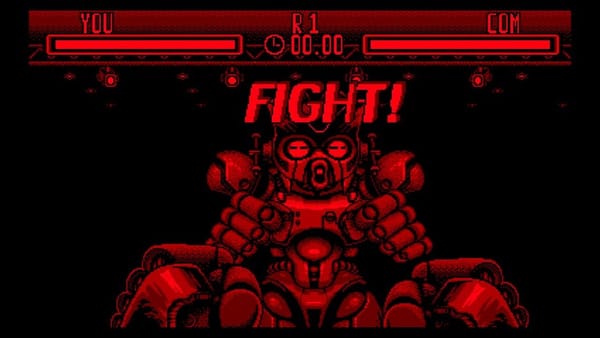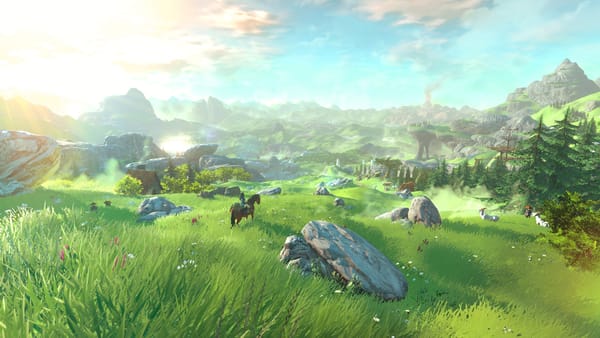#45: China crisis
While we in the west talk a lot these days about China’s game industry, our discussions typically focus on its activities over here. That is quite understandable: it feels like scarcely a week goes by without Tencent or NetEase pumping investment into another renowned western developer or publisher. But we talk less about the reverse — about how important, or potentially important, China’s domestic gaming market is for western game companies.
It is the largest single market for videogames on the planet, comfortably outstripping the US for both player numbers and revenue. When Klei Entertainment’s survival title Don’t Starve Together launched on Tencent’s WeGame digital store in 2017, it sold, with minimal marketing, a million copies in its first month. (Tencent, inevitably, acquired Klei earlier this year.) The numbers, and the potential, are staggering.
The Chinese government, however, is less enthused about games. A new ruling will outright forbid under-18s from playing games from Monday to Thursday each week, and allow only an hour a day, fixed at 8-9pm, from Friday to Sunday. China has long fretted about the impact of videogames on young people: as GI.biz notes, the new ruling is a tightening of a previous one that limited kids to an hour-and-a-half a day, and three hours on holidays. Other recent moves have seen players forced to log in using their real names, and Tencent implementing facial recognition into its titles to ensure kids can’t swerve the rules by logging in on a parent’s account.
This latest development follows Chinese state media’s labelling of games as “spiritual opium” last month, which prompted fears of an imminent crackdown and sent Tencent’s shares tumbling by 6% in a single day. While there tends to be much clutching of pearls around the industry whenever governments talk negatively about games, I think anyone who doesn’t see at least a grain of truth in the phrase “spiritual opium” is kidding themselves. Too many games today — especially the mobile-first, multiplayer, live-service-y games the Chinese ruling is aimed at, the main culprit being Tencent’s colossally successful Honor Of Kings — are built for engagement. They reward daily play, ideally for multiple hours, and punish its absence. Compulsion is a key pillar of their design.
It is natural to get a bit twitchy about this sort of state intervention. And we must note that the Chinese government is not fretting about impressionable young minds so much as it is about what, precisely, is impressed upon them. The Chinese school year began yesterday with a new addition to the national curriculum: textbooks are now peppered with president Xi Jinping’s political ideology. Primary school teachers, for instance, are told to “plant the seeds of loving the party, the country and socialism in young hearts”, and their materials feature quotes and anecdotes from “Grandpa Xi”. That seems to me more problematic for Chinese youth than letting them spend Wednesday evenings ganking noobs in Honor Of Kings, but I suppose that’s why I’m not president of China. They offered, of course, but we couldn’t come to an agreement on image rights.
Either way, it’s interesting to me to see these levers being pulled — a two-word line in a state-owned newspaper cratering tech stocks, a government ruling winning the parent-and-child screen-time argument for good with a stroke of a pen — and to realise how much more willing Eastern governments are to step in to check the power and social impact of big corporations than their western counterparts. In South Korea yesterday, a government ruling mandated that Apple and Google let developers use thirdparty payment providers in their apps, an argument that’s been tied up in western courts for years (Apple settled one such suit last week, but its battle with Epic Games rumbles on). Meanwhile, in the west, Big Tech has been allowed to run unchecked, and now your old schoolfriend’s gone full QAnon on YouTube, and your nan’s injecting herself with horse paste because Facebook told her to.
I’m not about to move to China, no. But all this points to the uncomfortable fact that governments are the only things left that are bigger than these companies (and even that’s debatable). It may make us queasy, but perhaps we need their help more than we’d like to admit.
MORE!
- Staying in Asia for a moment, PUBG creator Brendan Greene has quit South Korea’s Krafton Group and upped sticks to Amsterdam. His new studio, PlayerUnknown Productions, is built for “exploring the systems needed to enable massive scale within open-world games”.
- And while we’re here, China’s NetEase is reportedly in late-stage discussions to poach Toshihiro Nagoshi from Sega. Not sure about this personally, but I can see the appeal for both parties: a high-profile hire for one, and one last big job for the other. I like Nagoshi a lot. He used to write a column for Edge in which he mostly talked about his love of whisky. When I went to Japan to interview him a few years ago I gave him a bottle of one of my favourites, and in my quieter moments I often wonder whether he ever drank it. Sorry, rambling a bit. It’s my age, I think.
- Some 13 million people, from 180 countries, tuned in to not-Gamescom last week. Opening Night Live, assembled and helmed by broadcast god-king Geoff Keighley, had 5.8 million viewers.
- Xbox, Square Enix, Capcom and Sega are among those confirming broadcasts for Tokyo Game Show — to be referred to henceforth as not-TGS — later this month.
- ProbablyMonsters, the ‘studio system’ founded by former Bungie CEO Harold Ryan, has raised an eye-watering $200 million, which Ryan has been told is the biggest Series A raise that games have ever seen. No pressure, eh.
- Windows 11 arrives on October 5, and with it such Xbox Series features as AutoHDR and DirectStorage. A free upgrade to Windows 10 owners, it will be rolled out over time, with Microsoft reckoning all eligible devices will be offered it by mid-2022.
- Xbox is using its social media presence to encourage Covid-19 vaccine takeup. I don’t think your nan follows them on Twitter, unfortunately, but good stuff nonetheless.
- Twitch superstar DrLupo is now YouTube superstar DrLupo, having inked an exclusivity deal with Google. Lupo, who had 4.5 million followers on Twitch, says the deal means he is “secure for life”, adding: “Everybody’s just trying to secure the bag, right?” Indeed.
I, too, am trying to secure the bag — assuming that means what I think it does, anyway. Do you like Hit Points? Do you appreciate that it is both ad-free and bereft of nefarious SEO techniques? Do you cheer the fact that it arrives in your inbox, saving you from navigating the choppy waters of the modern internet to find the things that matter? If so, perhaps you’d like to become a paid supporter. For just 14p — fourteen pence! — a day (20¢ to US readers), you’ll be helping ensure I can keep doing this thing I love without fretting endlessly about my bank balance. And within the next month, subscribers will also gain access to exclusive weekly #content. More on that next week. In the meantime, have an excellent couple of days, and I’ll see you on Friday.





